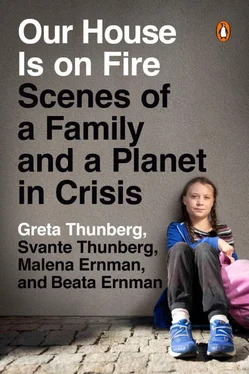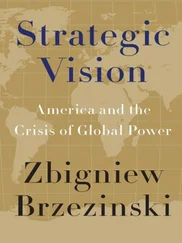And all the things we can’t do.
We have to abandon the maps and make our way into the unknown.
We have to start listening to all that we’ve stopped listening to.
We have to take the lead while keeping a welcoming door open behind us.
Everyone is welcome.
Everything and everyone is needed.
SCENE 106.
Back to Square One
Late one evening when the apartment is in darkness, the phone chimes. Greta and Svante and the dogs went to sleep long ago. It’s Beata, texting from her bed on the top floor.
‘This is so me,’ she writes.
Beata has sent a YouTube link and a screen dump from a website. ‘Misophonia’, it says.
‘I was searching for diagnoses,’ she says. ‘This describes exactly how it feels.’
I read. I scroll down.
Read a little more. What is this? Yet another dead end? Another side track created by querulants hoping to make a career in having as many diseases and strange conditions as possible?
But no.
Apparently misophonia really exists. Articles have been published in TIME magazine, the New York Times and lots of other newspapers, and it all fits with Beata.
Literally everything.
Misophonia is a neurological syndrome, a disorder, that involves intense discomfort with certain, specific sounds. Everyday sounds. For example, breathing in and out, lip-smacking, whispering. Or tableware against porcelain.
Of course everyone is bothered by certain specific sounds. But for a person with misophonia these so-called trigger sounds are often so disturbing that they simply can’t function in various contexts. The most common reaction is anger and rage.
• • •
For example, Beata has told us again and again how she can’t concentrate on anything if she hears someone whispering.
‘It can’t be controlled. When you’re sitting next to someone who snuffles through their nose you can’t do anything about the fact that you get angry. It’s impossible to focus on anything else.’
• • •
Misophonia is a brand-new concept but it exists, with the relevant supporting research and everything.
A study from Amsterdam University recommends that misophonia immediately become a recognized diagnosis, because those who are affected have a clear and obvious handicap that they can’t control.
A Newcastle University study published in 2017 says that ‘Misophonia [is] a devastating disorder for sufferers and their families, and yet nothing is known about the underlying mechanism.’
There are connections to ADHD and autism spectrum disorder. There are connections to stress. Sometimes the symptoms go away as you grow older. It’s all very real.
And yet I’ve never heard the word mentioned. Despite all the thousands of pages I’ve read. Despite all the meetings and conversations that I’ve attended.
‘The awareness of misophonia is reminiscent of how ADHD was viewed just a couple of decades ago,’ an American psychologist and author writes.
There are resources. Adaptations can be made.
But here there are no maps yet. Everything is uncharted territory.
And so we’re back to square one. Again.
There is so much we don’t know. Many people say that we humans have already understood the significance of the climate and sustainability crisis. And we’re repressing it.
But that’s incorrect.
Our ignorance is so much greater than we think.
We don’t know.
We don’t understand.
Decades of important discoveries have not got through. The information has almost been for nothing.
A crushing majority of the world’s population has no idea about the true meaning of the climate crisis.
And right there, in that knowledge, is all the hope we need.
Because what if we’d known?
What if we’d done all that we’ve done maliciously? Completely deliberately?
What if today we were to keep on doing what we do, despite our understanding of the ecological catastrophe we are leaving behind us?
As if humans were deliberately evil?
That is inconceivable.
• • •
And what if humanity’s pain threshold had been a little higher?
What if we could have continued to live like we do without so many of us starting to fall apart and break down in the frenzy of society today?
Then it all would have been too late.
Then all social injustice, all oppression, all mental illness and all burn-out would have been in vain.
But it’s not like that.
It turns out there are a few safety valves, and this is one of them.
It says that there is still time.
It says that there is a political system that gives us the chance to repair what has been broken and create something just, new and better. It says that there are tools and those tools are called public awareness and education.
The climate crisis is one symptom among many of an unsustainable world.
An acute symptom.
At the same time the sustainability crisis is a choice.
A chance to put everything right.
And in that lies our hope.
SCENE 108.
Places, Everyone
I believe that life is not a dress rehearsal. And I believe that we have to rethink our approach.
Of all the people who have ever populated this earth, 7 per cent are alive today.
That’s us.
We belong together. We are a part of a whole that extends backwards and forwards in time and it’s up to us, this 7 per cent, to secure everyone’s future.
That is our historic task and we need each other.
More than ever.
We need technology. We need sustainable forestry and agriculture. We need the companies, the economists, the politicians, the journalists and the scientists, and we need our amazing capacity for adaptation and change.
But most of all we need to affirm each other’s goodwill.
• • •
We have already solved the climate crisis. What needs to be done is crystal clear.
All that’s left to do is make a choice.
Economy or ecology?
We have to choose.
At least until we have made our way to safe ground.
The fact that our purely existential challenges are still being reduced to party politics is absurd. To secure the limited resources that enable future life must be an absolute given. Just like the insight that the way forward can sometimes require taking a few steps back.
Just like equality and the fact that every person’s equal worth ought to be as self-evident as the political parties maintain it is.
But it isn’t.
On the contrary.
And for that very reason there are no questions that are more political.
They belong together.
They are one and the same.
Because when our limitless, hyper-competitive society’s CO 2levels reach our outermost atmosphere and literally hit the ceiling, when the law that everything must get bigger, faster, greater is set against our common survival, a new world stands at the door, and that world has never been as close as it is now.
Or as far away.
A moderate world.
A world where a little girl equipped with an Instagram account and a picture of a polar bear can be an equally effective defender of our common security as all the world’s armies combined.
• • •
Our limitations are slowly becoming apparent. The infinite is regaining its contours. Not everything is possible, and that’s good. Because in moderation there is a different, much greater freedom.
Is the struggle for the environment the world’s greatest feminist movement? Not because it in any way excludes men, but because it challenges the structures and values that have created the crisis we now find ourselves in.
Читать дальше






![Корнелл Вулрич - Murder at Mother’s Knee [= Something That Happened in Our House]](/books/398097/kornell-vulrich-murder-at-mother-s-knee-somethin-thumb.webp)





